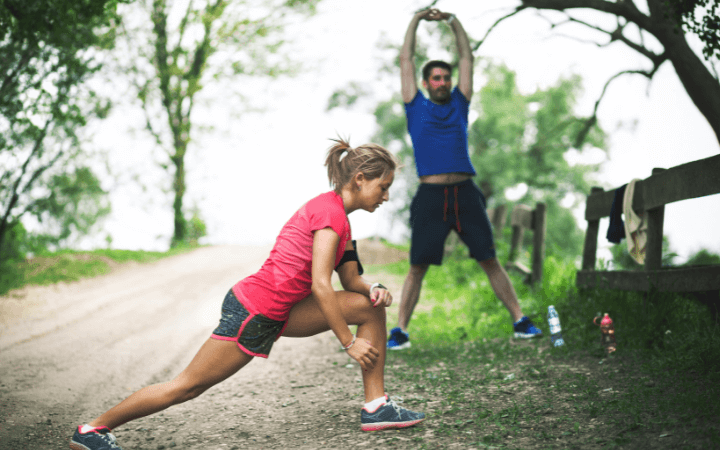
Exercise for your Wellbeing
Exercise is important for your overall health and mental wellbeing. If you’re looking for inspiration, or simply want to learn more about different types of exercise and the benefits they have, read on!
What are the different types of exercise?
Here we break down three different types of exercise and their benefits:
- Aerobic/endurance is any workout that speeds up your heart rate and breathing (e.g. walking, running, cycling, stair climbing, hiking, dancing, swimming, and aerobics).
- Regular aerobic exercise improves your cardiovascular health, lowers blood pressure, helps manage your weight, reduces the risk of type 2 diabetes, improves brain function, reduces stress, anxiety and depression.
- Strength: builds muscle mass (e.g. weights, resistance training, body weight exercises).
- Strength training is important because as we get older, we lose muscle mass. Muscle strength makes daily activities easier, reduce your risk of osteoporosis, improves posture, and helps to manage weight and chronic conditions.
- Stretching/balance: movement that improves flexibility and balance. (e.g. yoga, tai chi, and various stretches: there are so many different types of stretches you can do for different parts of your body).
- Stretching can reduce your risk of injury, help you recover from injury, or cool down effectively after a workout, reduce your risk of falls and increase your flexibility.
Why is exercise important for mental health?
Have you ever walked into the gym feeling anxious and stressed after a difficult day, only to walk out feeling invigorated and clear-minded? This is not a coincidence! Research has proven that aerobic exercise reduces stress, and the symptoms of anxiety and depression. This is thought to be as a result of increased blood circulation in the brain, induced by exercise.
Exercise releases chemicals including endorphins and serotonin that improve your mood. It also improves mental clarity by increasing blood flow to the brain.
How much exercise do we need for health?
It is recommended that adults are active on most days with a combination of moderate and vigorous intensity activities, incorporating strength work into your training at least twice a week.
If you want to put it in numbers, the current recommended amount each week is:
- 5 – 5 hours of moderate intensity activity (includes power walking, swimming, leisurely cycling, playing golf, and doing housework, etc). OR
- 25 – 2.5 hours of vigorous intensity activity (includes jogging/running, fast cycling, high intensity interval training, football or netball, etc).
- You can also do a combination of moderate or vigorous intensity activities to meet the recommended amount.
If you have any questions about exercise or how to incorporate more exercise into your lifestyle, we’re here to help! Please call us on (08) 9203 7771 or make an appointment.
References:
- National Institute on Aging. Four Types of Exercise Can Improve Your Health and Physical Ability. [Online]. Available at: https://www.nia.nih.gov/health/four-types-exercise-can-improve-your-health-and-physical-ability (Accessed 25 May 2022).
- Health Direct (2020). Exercise and mental health. [Online]. Available at: https://www.healthdirect.gov.au/exercise-and-mental-health (Accessed 25 May 2022).
- Sharma, A., Madaan, V., & Petty, F. D. (2006). Exercise for mental health. Primary care companion to the Journal of clinical psychiatry. [Online]. Available at: https://www.ncbi.nlm.nih.gov/pmc/articles/PMC1470658/ (Accessed 25 May 2022).
